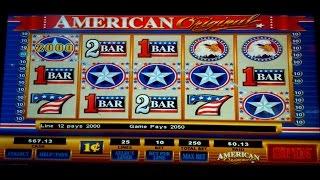Sometimes the odds will be better than others. The four factors above will help you decide how many slot machine paylines you should spin each time. When you're at a Casino Knights Inc. Casino party, every pull is a win! Casino Knights, Inc. Provide authentic slot machines, professional poker tables, casino games and the chips. Slots: Odds of Winning Around 1 in 49,836,032 You play slots by putting money into a slot machine and pulling a lever or pushing a button to spin a wheel. Depending on where the wheel lands, you win or lose. Slot machines have various odds of winning, and the odds are printed on each machine. Classic Slot Games: For the nostalgic veterans who enjoy the traditional casino-style games, we supply over 400 3-reel free slots no download games and two-dimensional machines. They are usually not abundant with bonuses, but they are easy to use as they consist of a few lines and rows. Video slot machines allow can be studied. It is possible to establish, in the case of video slots, what slots have the best odds. Reel slots are the original machines., using mechanic and electronic devices to allow them to play an excellent game. Deconstructing Lionfish: The Wizard calculates the return of the Lionfish slot machine. OCT 26 Wink Slots Review: New online casinos operated by Cassava Enterprises Limited. OCT 20 WildSlots Review: Review of the new online casino powered by EveryMatrix. JUL 25 The Evolution of Slot Machines: A detailed look at slot machines from when they were.

Remember the movie National Lampoon's Vegas Vacation, when gambling fever consumes Chevy Chase's character, Clark W. Griswold? He goes on a losing streak to beat all losing streaks while his son, Rusty, wins four cars by playing the slot machines. Maybe Clark would have done better if he had read Probability For Dummies! In this article, you discover the basic ideas behind slot machines and how they work, so that you can get past the myths and develop a strategy based on sound probability.
Understanding average payout
When casinos advertise that their slot machines pay out an average of 90 percent, the fine print they don't want you to read says that you lose 10 cents from each dollar you put into the machines in the long term. (In probability terms, this advertisement means that your expected winnings are minus 10 cents on every dollar you spend every time the money goes through the machines.)
Suppose you start with $100 and bet a dollar at a time, for example. After inserting all $100 into the slot, 100 pulls later you'll end up on average with $90, because you lose 10 percent of your money. If you run the $90 back through the machine, you'll end up with 90 percent of it back, which is 0.90 x 90 = $81. If you run that amount through in 81 pulls, you'll have $72.90 afterward (0.90 x 81 = 72.90). If you keep going for 44 rounds, on average, the money will be gone, unless you have the luck of Rusty Griswold!
How many pulls on the machine does your $100 give you at this rate? Each time you have less money to run through the machine, so you have fewer pulls left. If you insert $1 at a time, you can expect 972 total pulls in the long term with these average payouts (that's the total pulls in 44 rounds). But keep in mind that casinos are designing slot machines to go faster and faster between spins. Some are even doing away with the handles and tokens by using digital readouts on gaming cards that you put into the machines. The faster machines can play up to 25 spins per hour, and 972 spins divided by 25 spins per minute is 38.88 minutes. You don't have a very long time to enjoy your $100 before it's gone!
The worst part? Casinos often advertise that their 'average payouts' are even as high as 95 percent. But beware: That number applies only to certain machines, and the casinos don't rush to tell you which ones. You really need to read or ask about the fine print before playing. You can also try to check the information on the machine to see if it lists its payouts. (Don't expect this information to be front and center.)
Implementing a simple strategy for slots
Advice varies regarding whether you should play nickel, quarter, or dollar slot machines and whether you should max out the number of coins you bet or not (you usually get to choose between one and five coins to bet on a standard slot machine). In this section, you'll find a few tips for getting the most bang for your buck (or nickel) when playing slot machines.


Remember the movie National Lampoon's Vegas Vacation, when gambling fever consumes Chevy Chase's character, Clark W. Griswold? He goes on a losing streak to beat all losing streaks while his son, Rusty, wins four cars by playing the slot machines. Maybe Clark would have done better if he had read Probability For Dummies! In this article, you discover the basic ideas behind slot machines and how they work, so that you can get past the myths and develop a strategy based on sound probability.
Understanding average payout
When casinos advertise that their slot machines pay out an average of 90 percent, the fine print they don't want you to read says that you lose 10 cents from each dollar you put into the machines in the long term. (In probability terms, this advertisement means that your expected winnings are minus 10 cents on every dollar you spend every time the money goes through the machines.)
Suppose you start with $100 and bet a dollar at a time, for example. After inserting all $100 into the slot, 100 pulls later you'll end up on average with $90, because you lose 10 percent of your money. If you run the $90 back through the machine, you'll end up with 90 percent of it back, which is 0.90 x 90 = $81. If you run that amount through in 81 pulls, you'll have $72.90 afterward (0.90 x 81 = 72.90). If you keep going for 44 rounds, on average, the money will be gone, unless you have the luck of Rusty Griswold!
How many pulls on the machine does your $100 give you at this rate? Each time you have less money to run through the machine, so you have fewer pulls left. If you insert $1 at a time, you can expect 972 total pulls in the long term with these average payouts (that's the total pulls in 44 rounds). But keep in mind that casinos are designing slot machines to go faster and faster between spins. Some are even doing away with the handles and tokens by using digital readouts on gaming cards that you put into the machines. The faster machines can play up to 25 spins per hour, and 972 spins divided by 25 spins per minute is 38.88 minutes. You don't have a very long time to enjoy your $100 before it's gone!
The worst part? Casinos often advertise that their 'average payouts' are even as high as 95 percent. But beware: That number applies only to certain machines, and the casinos don't rush to tell you which ones. You really need to read or ask about the fine print before playing. You can also try to check the information on the machine to see if it lists its payouts. (Don't expect this information to be front and center.)
Implementing a simple strategy for slots
Advice varies regarding whether you should play nickel, quarter, or dollar slot machines and whether you should max out the number of coins you bet or not (you usually get to choose between one and five coins to bet on a standard slot machine). In this section, you'll find a few tips for getting the most bang for your buck (or nickel) when playing slot machines.
Basically, when it comes to slot machines, strategy boils down to this: Know the rules, your probability of winning, and the expected payouts; dispel any myths; and quit while you're ahead. If you win $100, cash out $50 and play with the rest, for example. After you lose a certain amount (determined by you in advance), don't hesitate to quit. Go to the all-you-can-eat buffet and try your luck with the casino food; odds are it's pretty good!
Choosing among nickel, quarter, and dollar machines
The machines that have the higher denominations usually give the best payouts. So, between the nickel and quarter slots, for example, the quarter slots generally give better payouts. However, you run the risk of getting in way over your head in a hurry, so don't bet more than you can afford to lose. The bottom line: Always choose a level that you have fun playing at and that allows you to play for your full set time limit.
Deciding how many coins to play at a time
American Original Slot Machine Odds Genesis Open
When deciding on the number of coins you should play per spin, keep in mind that more is sometimes better. If the slot machine gives you more than two times the payout when you put in two times the number of coins, for example, you should max it out instead of playing single coins because you increase your chances of winning a bigger pot, and the expected value is higher. If the machine just gives you k times the payout for k coins, it doesn't matter if you use the maximum number of coins. You may as well play one at a time until you can make some money and leave so your money lasts a little longer.
For example, say a quarter machine pays 10 credits for the outcome 777 when you play only a single quarter, but if you play two quarters, it gives you 25 credits for the same outcome. And if you play the maximum number of quarters (say, four), a 777 results in 1,000 credits. You can see that playing four quarters at a time gives you a better chance of winning a bigger pot in the long run (if you win, that is) compared to playing a single quarter at a time for four consecutive tries.
American Original Slot Machine Odds Jackpot
The latest slot machine sweeping the nation is the so-called 'penny slot machine.' Although it professes to require only a penny for a spin, you get this rate only if you want to bet one penny at a time. The machines entice you to bet way more than one penny at a time; in fact, on some machines, you can bet more than 1,000 coins (called lines) on each spin — $10 a shot here, folks. Because these machines take any denomination of paper bill, as well as credit cards, your money can go faster on penny machines than on dollar machines because you can quickly lose track of your spendings. Pinching pennies may not be worth it after all!

